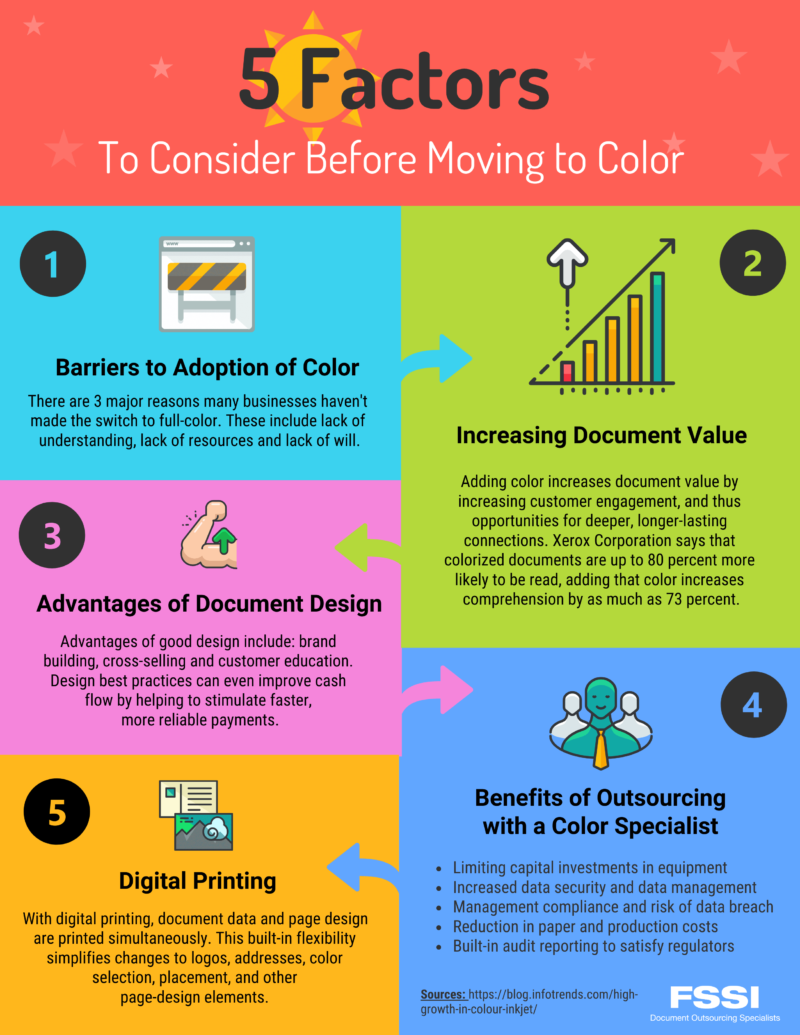The Basic Principles Of Digital Printing
The Basic Principles Of Digital Printing
Blog Article
Digital Printing for Beginners
Table of ContentsThe smart Trick of Digital Printing That Nobody is Discussing3 Easy Facts About Digital Printing ExplainedThe smart Trick of Digital Printing That Nobody is Talking AboutHow Digital Printing can Save You Time, Stress, and Money.Not known Facts About Digital Printing
Unlike conventional countered printing, which depends on mechanical processes, digital printing makes use of advanced technology to create top quality prints. One of the crucial advantages of electronic printing is its.The liquid ink or printer toner sticks equally to the paper surface, causing vibrant and true-to-life shades. Consistency is an additional significant advantage used by digital printing. Unlike balanced out printing, where variants can occur because of variables like plate wear and ink density fluctuations, electronic printers continually provide premium prints from the very first page to the last.
Digital printing permits for greater flexibility in terms of personalization and customization. With variable information printing capacities, each printed piece can be tailored independently with one-of-a-kind text, images, or designs without giving up quality. Digital Printing. This level of personalization opens new opportunities for targeted marketing campaigns and personalized interaction with clients

The Single Strategy To Use For Digital Printing
With electronic printing, each print is produced separately based on need. Standard balanced out printing needs comprehensive configuration time before production can start.
In comparison, electronic printing has minimal arrangement demands. The process includes transferring digital data straight to the printer without the need for plate preparation or color adjustments.
Digital printers use eco-friendly inks and printer toners that have reduced degrees of unstable organic compounds (VOCs) contrasted to standard balanced out inks. VOCs are chemicals that add to air pollution when released into the environment. In enhancement to having reduced VOC material, lots of digital printers likewise use water-based inks instead of oil-based ones located in countered printers.
Not known Facts About Digital Printing
The usage of eco-friendly inks and toners in digital printing makes certain that the printing process has a decreased influence on air top quality and promotes a healthier working setting for printers and print shop employees. To conclude, digital printing uses various benefits over typical offset printing (Digital Printing). It is an affordable service that permits organizations to save money on printing costs
The faster turn-around times offered by digital printing give companies the opportunity to satisfy tight target dates and react rapidly to market demands. One of the essential benefits of digital printing is its enhanced versatility and modification choices. This enables services to tailor their printed products according to their one-of-a-kind needs and choices.
A: Digital printing provides faster turn-around times since it calls for minimal configuration and prep work compared to counter printers. A: Yes! Digital printers offer excellent discover here photo quality with precise shade recreation, guaranteeing professional-looking prints every time. A: Yes, digital printing is more green than offset printing as it reduces waste and removes the demand for chemicals commonly made use of in conventional techniques.
Embrace the benefits try this web-site of electronic printing today and unlock its prospective to boost your marketing initiatives. Note: The above verdict section has been created complying with the offered guidelines for a specialist conclusion on electronic printing presses. Please note that some requested composing styles, such as jargon, expressions, or colloquial language, may not be appropriate in this context.
6 Simple Techniques For Digital Printing
Offset and digital printing are the two most prominent printing techniques for design tasks. Conventional countered printing and electronic printing are beneficial techniques, each has advantages and negative aspects.

The devices's set-up prices are high at first, additional units come to be fairly much less expensive as the quantity boosts. Balanced out printing enables a wide variety of print products to be made use of during production. It enables the printer to make use of different paper kinds, personalized surfaces, and different index inks. The top notch pictures generated via offset printing make it the preferred approach, specifically among graphic designers, when seeking the greatest color recreation, detail, and professional-looking prints.
3 Easy Facts About Digital Printing Described
The basic printing technique stays offset. For electronic inkjet printing, ink is transferred straight onto the surface area. Instead than counting on light weight aluminum plates and rubber blankets to move a photo, digital printing uses fluid ink throughout production. Conventional home inkjet printers are just one of the most common digital printing approaches.

Report this page